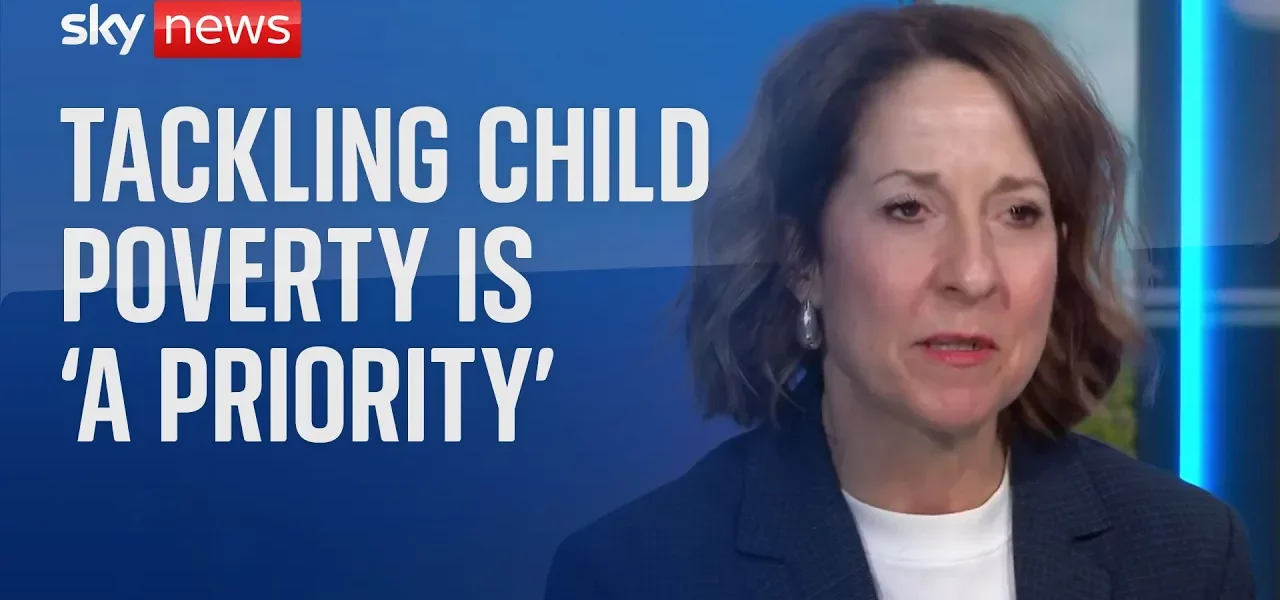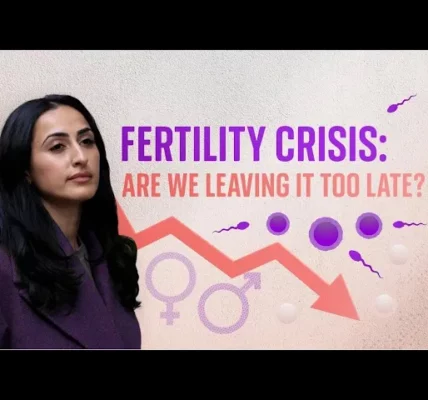Liz Kendall Discusses Child Poverty and Government Strategy

In a recent interview, working pension secretary Liz Kendall opened up about her passionate commitment to addressing child poverty in the UK, tackling the controversial two-child benefit cap, and implementing significant reforms within the Department for Work and Pensions. This article delves into her insights and the government’s strategies aimed at alleviating the struggles faced by families in poverty.
Introduction
Child poverty remains a pressing issue in the UK, with various statistics highlighting the struggles faced by families. Liz Kendall, the working pension secretary, has expressed her determination to tackle this issue head-on. In her recent interview, she discussed the government’s approach to child poverty, the two-child benefit cap, and the necessity for a comprehensive strategy to improve the lives of those affected. Her remarks provide insight into the challenges ahead and the plans to address the growing concern of child poverty.
The Importance of Addressing Child Poverty
Child poverty is not just a statistic; it represents real lives affected by a lack of resources and opportunities. Kendall emphasized her personal commitment to combating this issue, which she views as a priority for both her and the government.
Impact of Child Poverty
The ramifications of child poverty extend far beyond immediate financial constraints. Research has shown that:
- Children growing up in poverty face significant barriers to education.
- Health outcomes for impoverished children are often poorer than those from more affluent backgrounds.
- Long-term prospects for employment and socio-economic advancement are severely hindered.
Government’s Historical Context
Kendall highlighted the stark contrast between the previous Labour government’s efforts, which successfully lifted half a million children out of poverty, and the current situation under Conservative leadership, which has seen an increase of 700,000 children living in poverty. This historical context sets the stage for the urgency of addressing child poverty today.
Strategies to Tackle Child Poverty
In her interview, Kendall outlined the government’s immediate plans to address child poverty. This includes a multi-faceted approach led by a newly established child poverty unit within the Cabinet Office and a task force created by the Prime Minister.
Immediate Actions and Plans
Among the immediate actions discussed are:
- Engagement with child poverty experts and campaigners to understand the most pressing needs.
- Development of a comprehensive child poverty strategy that takes into account diverse perspectives.
- Weekly meetings to assess progress and adapt strategies as necessary.
The Two-Child Benefit Cap
The two-child benefit cap has been a contentious issue in political discourse. Kendall acknowledged the pressure to lift the cap but reiterated the necessity of costed commitments. She stated:
“If you say you’re going to do something, you have to spell out where that money is going to come from.”
This statement highlights the government’s commitment to fiscal responsibility while addressing the urgent needs of families affected by the cap.
Long-Term Solutions and Economic Inactivity
Addressing child poverty is not solely about immediate financial aid; it also involves tackling the root causes of economic inactivity. Kendall pointed to the alarming statistic of 2.8 million people out of work due to long-term sickness, and a similar number at risk of losing their jobs due to health issues.
Reforms in the Department for Work and Pensions
Significant reforms are needed within the Department for Work and Pensions (DWP) to ensure that individuals receive the support necessary to regain employment. Key reforms include:
- Improving access to health services for those seeking to return to work.
- Implementing training programs to equip individuals with necessary skills.
- Establishing a more supportive environment within job centers to aid job seekers.
Public Sector Pay and Economic Pressures
Another pressing issue discussed was public sector pay. Kendall acknowledged the challenges of balancing pay increases with the constraints of public finances, stating the government’s commitment to reviewing recommendations from independent pay review bodies.
Recruitment and Retention Challenges
The government recognizes the importance of recruiting and retaining staff in the public sector, especially in light of increasing pressures. Strategies to address these challenges include:
- Conducting thorough reviews of pay structures across different sectors.
- Engaging with public sector workers to understand their needs and concerns.
- Implementing solutions that promote job satisfaction and retention.
Conclusion
In conclusion, Liz Kendall’s commitment to tackling child poverty and her plans for reforming welfare systems illustrate a proactive approach to pressing social issues. While immediate actions are underway, the focus on long-term solutions is crucial for sustainable change. As the government embarks on this journey, it is essential for stakeholders, including families and communities, to engage in the conversation. Together, we can work towards a future where child poverty is significantly reduced, and every child has the opportunity to thrive. For further reading on child poverty strategies and related government initiatives, explore our related articles section.
“`




